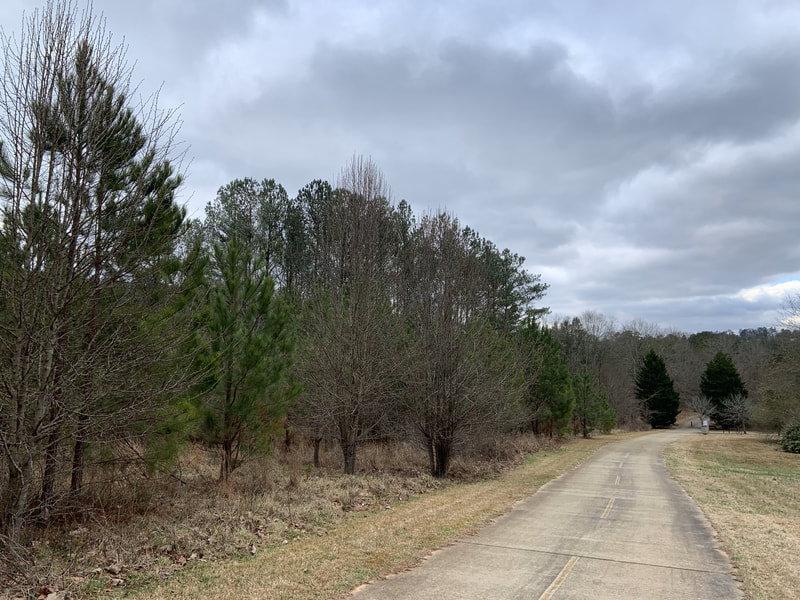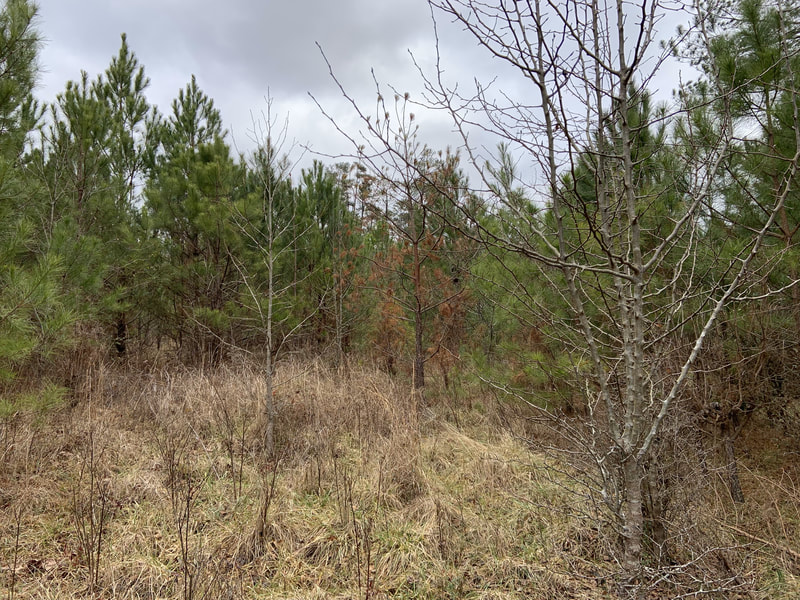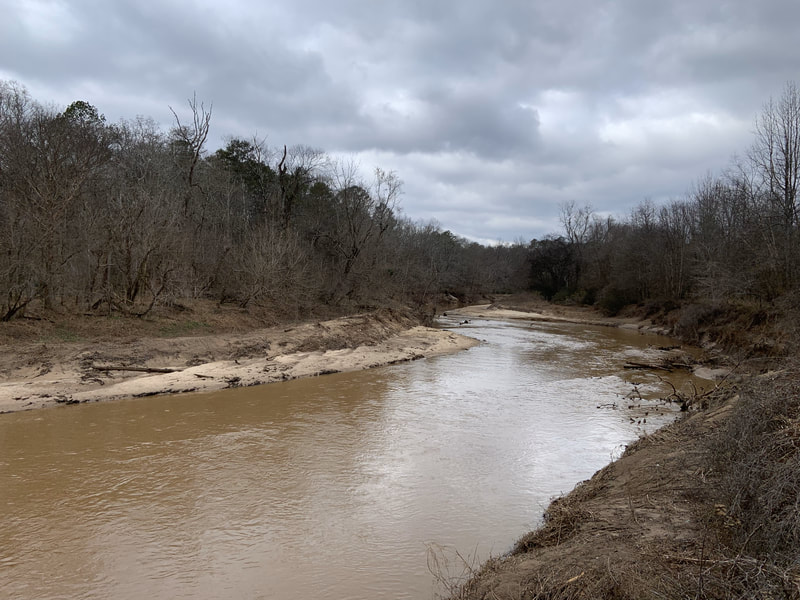|
Georgia Audubon was recently awarded a grant from National Fish & Wildlife Foundation’s Five Star and Urban Waters Restoration Program to restore 10 acres of habitat to protect the South River Watershed for the benefit of birds, pollinators, and other wildlife. The project site is located within the Lyon Farm area of the Arabia Mountain National Heritage Area, adjacent to the South River in southern DeKalb County.
As part of the restoration effort, Georgia Audubon will engage eight local partners and at least 50 volunteers to remove non-native vegetation from 10 acres of the South River Watershed and install 5,400 bird-friendly native plants and 40 pounds of seed to the area to provide high quality habitat for birds and other species. As part of the project scope, Georgia Audubon will engage local community members through volunteer projects, bird and wildlife monitoring, and public outreach and education programming. Georgia Audubon is joined by several partners to complete this work, including Arabia Mountain National Heritage Alliance, DeKalb County Watershed Management, Georgia Native Plant Society, Flat Rock Archives, South River Watershed Alliance, Panola Mountain State Park, and Rock Springs Restoration. “We are excited to have the support of the National Fish & Wildlife Foundation for this project in the South River Watershed, which is one of Georgia Audubon’s priority areas for engagement,” says Adam Betuel, Georgia Audubon’s director of conservation. “Lyon Farm is located along the South River, and our restoration work will directly benefit the riparian corridor that not only provides valuable habitat for birds and other wildlife, but it also acts as a buffer that protects and enhances the health of this important metro watershed.” As part of the project, Georgia Audubon’s habitat restoration team and volunteers will remove invasive plant species, including Bradford Pear (Pyrus calleryana), Chinese Privet (Ligustrum sinense), and Autumn Olive (Eleagnus umbellate), as well as non-native, invasive herbaceous plants such as Brazilian Verbena (Verbena brasiliensis), Johnson Grass (Sorghum halepense), and Beefsteak Plant (Perilla frutescens). After the invasive plants are cleared, Georgia Audubon will add native seeds, a diversity of wildflower plugs, and gallon-sized woody, native plants to the space to support and jumpstart the native regeneration of habitat. The project area is a 10-acre plot located in an area known as Lyon Farm, which stands today as a reminder of the area’s history and a glimpse into the agricultural lifestyle that once dominated the area. It also is key to the history of Flat Rock, one of the oldest African-American communities in Georgia. People were enslaved at the site prior to the Civil War. Enslaved people from the Lyon Farm site went on to help found the community of Flat Rock after the Civil War. Today, Flat Rock is one of the oldest African-American communities in Georgia. The formerly enslaved people from the Lyon Farm and other surrounding farms created a close-knit and resilient community following the Civil War, enabling themselves to flourish in the rural South. The project area is located in the South River watershed, which encompasses approximately 544 square miles. Approximately 40 percent of the watershed lies in the southern part of urban DeKalb County, which is located on the southeast edge of metro Atlanta. This restoration project will serve as a model of bird-friendly habitat that can be undertaken on other sites within the South River watershed, protecting South River-adjacent communities from flash flooding and other effects from climate change that are disproportionately impacting communities of color. This is the sixth award that Georgia Audubon has received from The Five Star and Urban Waters Restoration Program, which seeks to develop nation-wide community stewardship of local natural resources, preserving these resources for future generations and enhancing habitat for local wildlife. Grants seek to address water quality issues in priority watersheds, such as erosion due to unstable streambanks, pollution from stormwater runoff, and degraded shorelines caused by development. The Five Star and Urban Waters Restoration grant program is sponsored by the National Fish and Wildlife Foundation (NFWF) with major funding provided by U.S Environmental Protection Agency, U.S. Fish and Wildlife Service, U.S. Forest Service, Salesforce, FedEx, and Southern Company. About Georgia Audubon: Georgia Audubon is building places where birds and people thrive. We create bird-friendly communities through conservation, education, and community engagement. Learn more at www.GeorgiaAudubon.org. About the National Fish and Wildlife Foundation: Chartered by Congress in 1984, the National Fish and Wildlife Foundation (NFWF) protects and restores the nation’s fish, wildlife, plants and habitats. Working with federal, corporate, foundation and individual partners, NFWF has funded more than 6,000 organizations and generated a total conservation impact of $8.1 billion. NFWF is an equal opportunity provider. Learn more at nfwf.org.
0 Comments
Your comment will be posted after it is approved.
Leave a Reply. |
AuthorBirds Georgia is building places where birds and people thrive. Archives
July 2024
Categories |




 RSS Feed
RSS Feed

